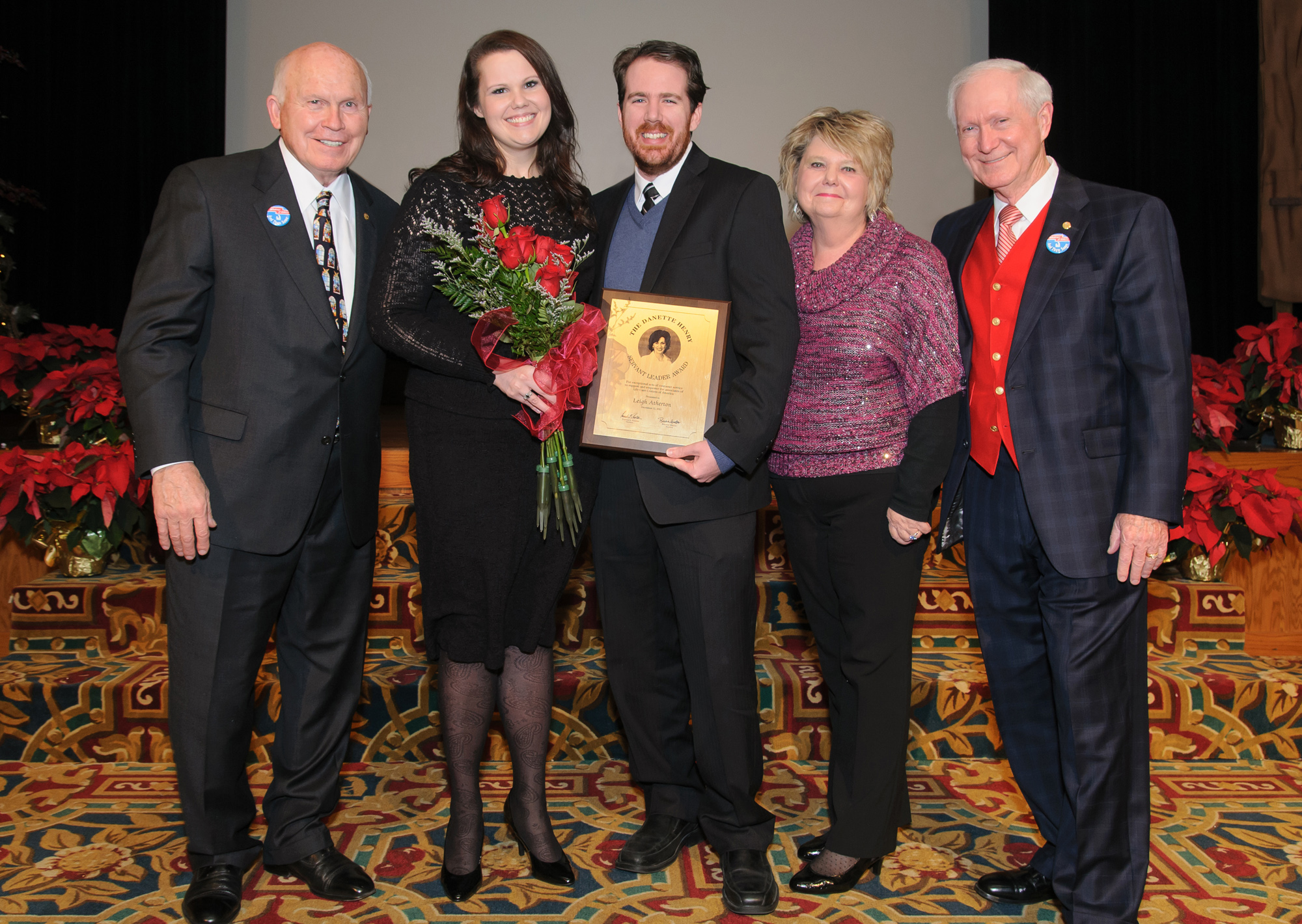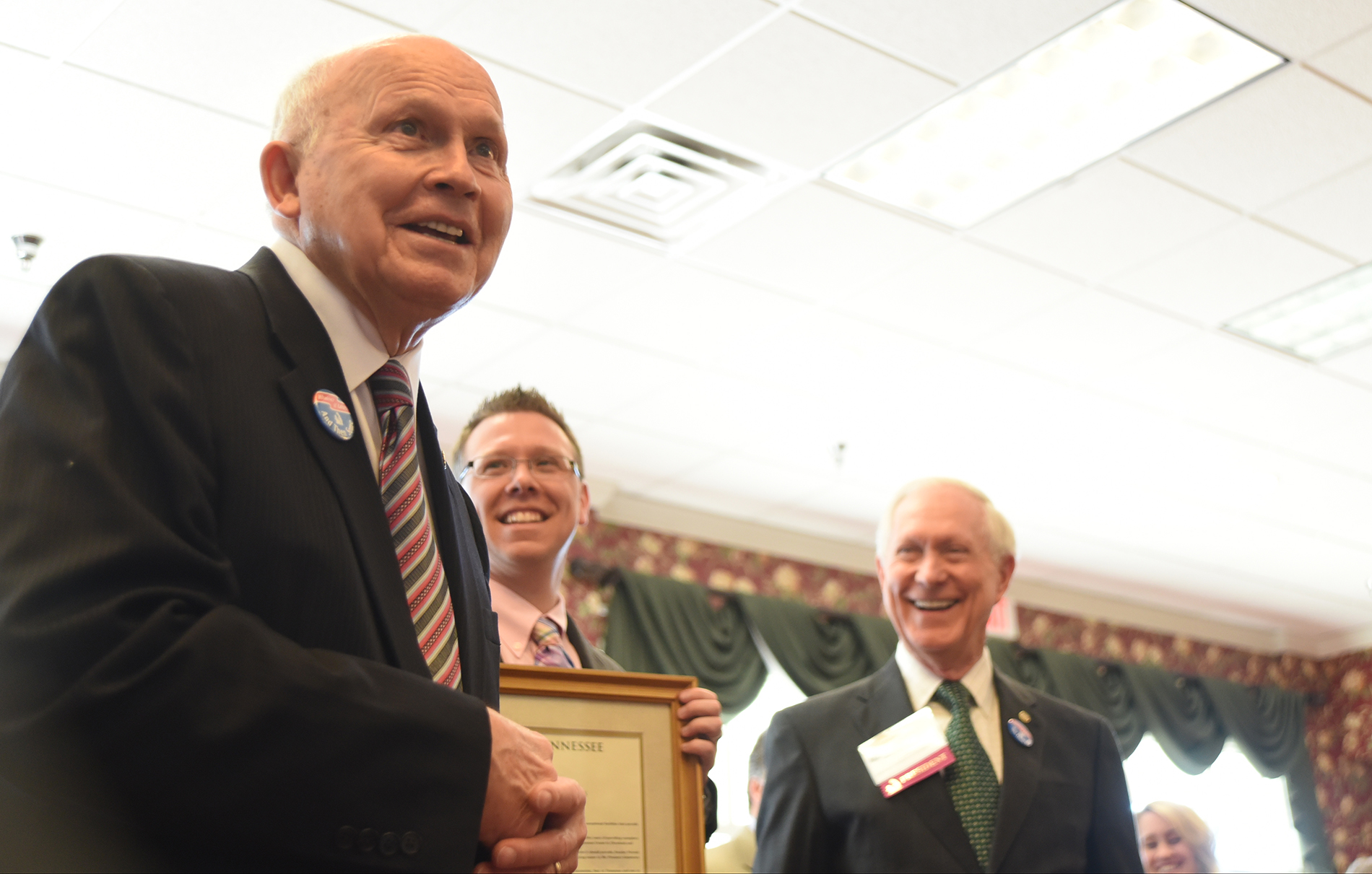 Life Care Centers of America presented its Danette Henry Servant Leader Award to Leigh Atherton, director of public relations, on Dec. 12. From left to right, are Forrest Preston, Life Care founder and chairman, Leigh Atherton, director of public relations, Aaron Atherton, LeighÕs husband, Pati Michels, LeighÕs mother, and Beecher Hunter, Life Care president.
Life Care Centers of America presented its Danette Henry Servant Leader Award to Leigh Atherton, director of public relations, on Dec. 12. From left to right, are Forrest Preston, Life Care founder and chairman, Leigh Atherton, director of public relations, Aaron Atherton, LeighÕs husband, Pati Michels, LeighÕs mother, and Beecher Hunter, Life Care president.Federal prosecutors have expanded their lawsuit against Life Care Centers of America to add founder Forrest L. Preston as a defendant.
As sole shareholder of Life Care Centers of America and owner in part or in whole of all Life Care nursing home facilities, billionaire Forrest Preston was the ultimate beneficiary of what federal prosecutors are calling unlawful conduct.
The lawsuit, brought under the False Claims Act, seeks to recover millions of dollars billed by Life Care to pay for services that were not covered and that were not medically necessary, according to a complaint filed in U.S. District Court. If prosecutors win, they would be entitled to treble damages under the False Claims Act, plus civil penalties of up to $11,000 for each violation.
Federal investigators found that Preston exercised complete control over the company and its board, even controlling which materials were allowed to be presented to the board, which he filled with friends and company administrators, according to the complaint.
Preston was tied so closely to his company that he borrowed more than $50 million from the company in 2009 through loans that were not always approved by the board, did not always have set repayment terms and did not always require collateral, according to prosecutors.
"As a result of Preston's actions, Preston has left Life Care severely undercapitalized while simultaneously receiving significant tax benefits as a result," prosecutors wrote. "Given Preston's control over the operations of the Life Care unitary business, given his knowledge of concerns raised by Life Care employees about the conduct at issue in this case, and given that he was personally enriched through his Life Care unitary business while leaving the company grossly undercapitalized, he should not be able to retain the proceeds of Life Care's false claims."
During his tenure, he received numerous complaints about, and was aware of the company's practice of not discharging residents in order to increase their length of stay, according to the lawsuit. In fact, keeping patients longer than was medically necessary and billing federal taxpayers at the highest possible rate was the company's policy, according to the lawsuit.
Prosecutors allege that Life Care billed nearly 68 percent of its Medicare rehabilitation days at the the highest daily rate that Medicare will pay a nursing facility, known as Ultra High, which is reserved for beneficiaries with the most clinically complex cases who require therapy well beyond the average amount of service time. The nationwide average is about 35 percent, according to the complaint.
The lawsuit says that Life Care "engaged in a systematic scheme to maximize the number of days it billed to Medicare and Tricare at the Ultra High level. Life Care accomplished this by setting aggressive Ultra High-related targets that were completely unrelated to its beneficiaries' actual conditions, diagnoses, or needs."
Life Care even punished facilities and employees that failed to meet its Ultra High targets or that complained about corporate pressure, according to the complaint.
"Life Care also frequently overrode or ignored the recommendations of its own therapists and unnecessarily delayed discharging beneficiaries from its facilities," prosecutors allege.
Life Care did not immediately respond to a request for comment.


